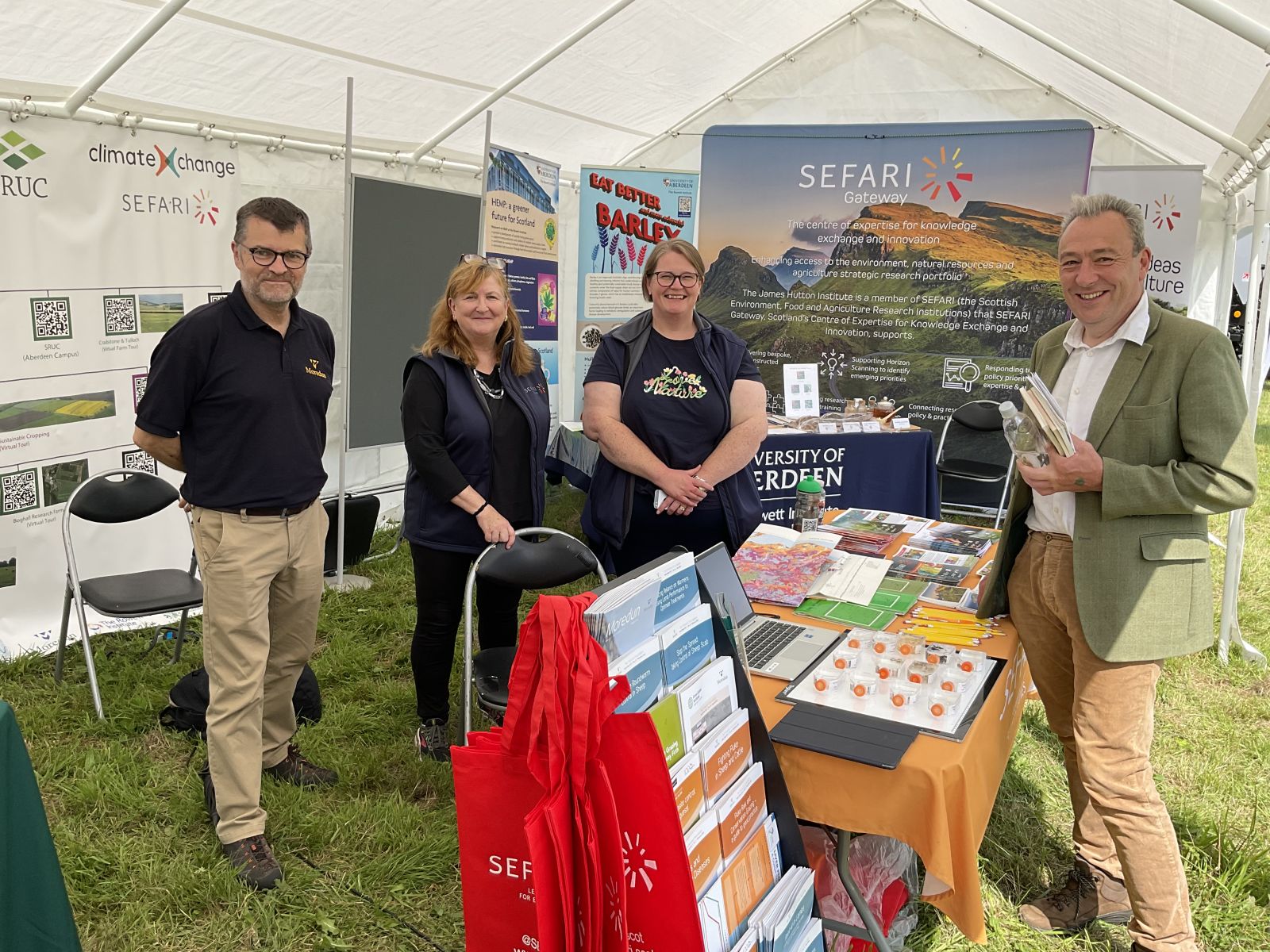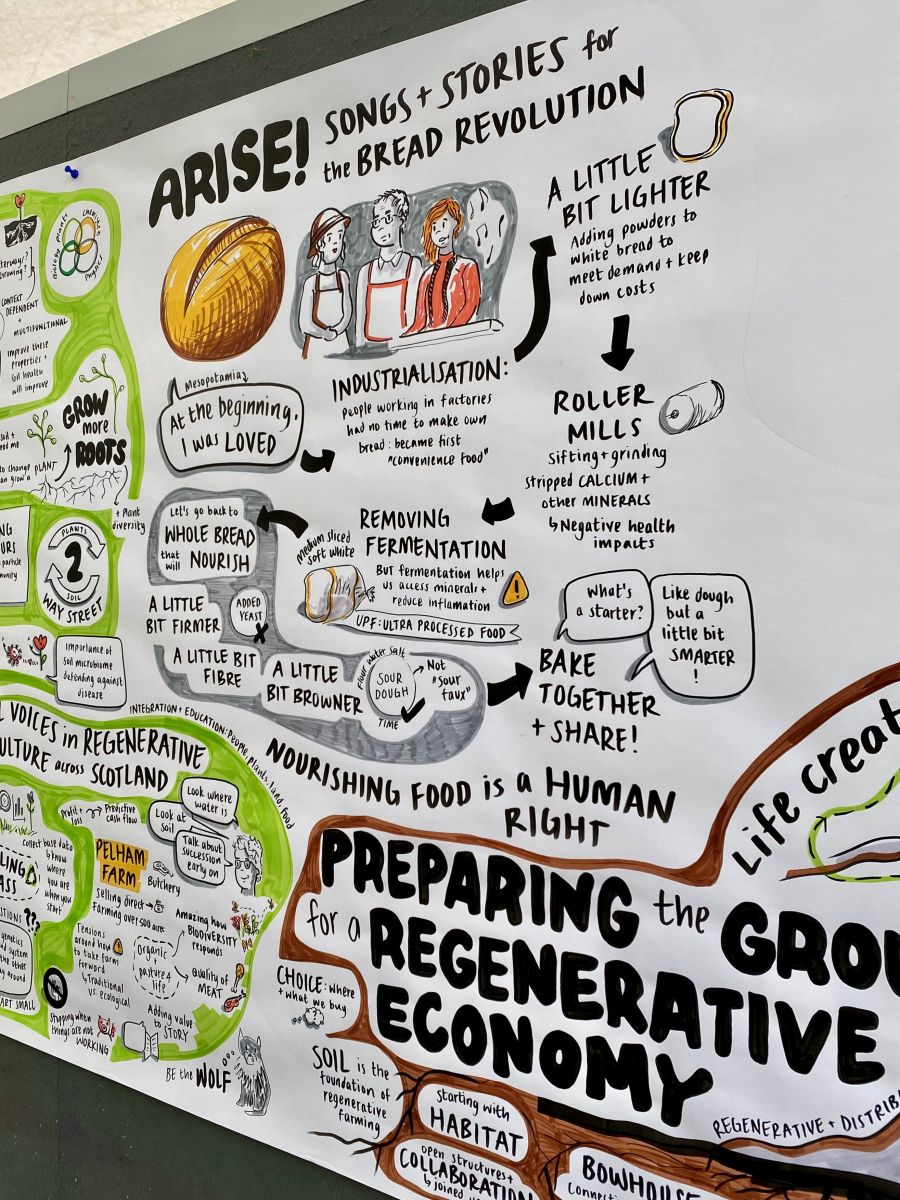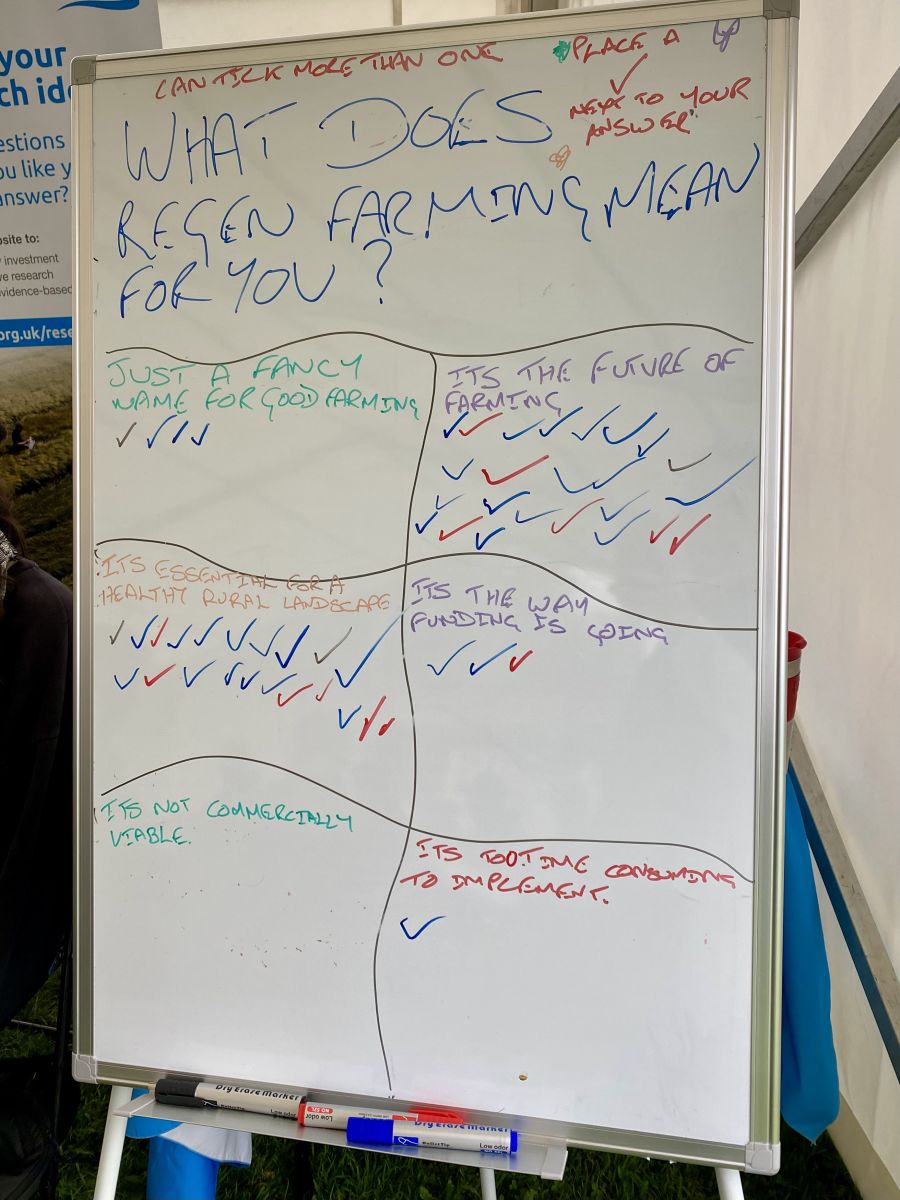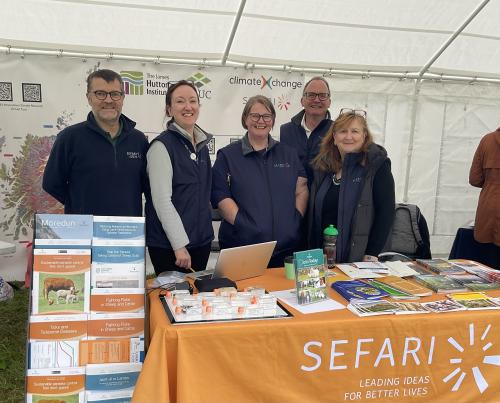The GO Falkland event came back for its second year, after last year’s success, offering a thought-provoking two-day programme, packed with talks and panel discussions by representatives of the land-based industries in Scotland, policymakers, and scientists – all providing their perspective on regenerative land use in Scotland and beyond.
Day one began with sunshine, and a promising programme of activities and events. We heard from the farming community on their approach to incorporate regenerative practices into their work. Scientists across the disciplines discussed how they contribute to solving the “land use jigsaw,” including Dr Graham Begg from The James Hutton Institute. Mairi Gougeon, Cabinet Secretary for Rural Affairs, Land Reform & Islands, shared her vision on Scotland becoming a Good Food Nation. Mrs Gougeon also visited the SEFARI stand and had a chat with the team!
.jpeg)
Mairi Gougeon at the SEFARI tent (photo by Lorna Dawson)
More insightful talks took place at the Water, Soil and Tree tents. In the Tree Tent, Dr Ken Loades from The James Hutton Institute, together with colleagues from NatureScot, SAC and Agrecalc spoke about aligning sustainability accreditation through the supply chain, and how can reporting metrics be streamlined across the different accreditations, to make the task more accessible and useful. We would like to take this opportunity to thank Dr Loades for organising our presence at the event.
The programme also included talks, readings and exhibitions by artists and their view of the rural landscapes and lives, including Jim Carruth - current poet laureate for Glasgow, who shines poetic light on experiences of those who work the land and the changes of the rural landscape.

Jim Carruth at the SEFARI tent (photo by Lorna Dawson)
Day two was equally insightful, although the sun apparently had only a one-day ticket. In all four tents the talks by practitioners, entrepreneurs, scientists, and artists continued. In the afternoon, Professor Wendy Russell from the Rowett Institute, alongside colleagues from Food Standards Scotland and the European Alliance for Regenerative Agriculture, shared her insight into turning policy into practice. Professor Russel also contributed to the discussion on One Health: from Soil to Stomach. Elsewhere, Dr Ali Karley from The James Hutton Institute participated in the talk on cropping for soil health and multiple ecosystem benefits, illustrating the discussed with crops from her allotment.
The sessions in the Big Tent were creatively documented and visualised through the ‘graphic harvesting’ by Eddie Phillips, contributing to the exchange of ideas and sparking conversations. Elsewhere, attendees were invited to tell what regenerative farming means for them by indicating their choices on a white board, which illustrated the importance of regenerative approaches to future-proofing rural economies and landscapes.


Left: Graphic harvesting in the Big Tent, by Eddy Phillips; Right:” What does Regenerative Farming mean for you” whiteboard, filled by attendees (photos by ©SEFARI Gateway)
During both days, our SEFARI tent had a steady stream of visitors, interested to hear about us, what we do and how we support the efforts towards regenerative land use across Scotland (examples of SEFARI research can be found on our website, including Integrated management systems and Alternative approaches to sustainable land management projects). At the SEFARI Gateway stall we had many conversations with attendees, from Scottish tea growers to a human health practitioner – all enthusiastic and dedicated to supporting regenerative practices for healthy people and the environment. A captivating display of worms and parasites provided by the Moredun Research Institute attracted many curious minds, and delicious barley biscuits and bread from the Rowett Institute attracted… well, everyone, including some lovely four-legged pals. SRUC and SAC Consulting were also present, receiving enquiries about relevant courses, and the James Hutton team were there too, to talk about their fascinating work and sponsor the Soil tent.
“In Scotland we have a really good opportunity to drive change”, said Professor Wendy Russell from the Rowett Institute. As a small but entrepreneurial country, we have a fantastic opportunity to drive the step change, required to ensure sustainable future of our ecosystems, food and rural places and communities. This change must incorporate regenerative practices, embedded in policy, and supported by evidence from science, as well as knowledge and lived experience of those who work the land. Thus, knowledge exchange between the stakeholders of our collective future is vital, using the expertise that everyone brings to the table.
It was our first time attending the GO Falkland event, which provided us with an opportunity to make new connections that may develop into new collaborative actions towards regenerative solutions. If you would like to talk to us about regenerative agriculture and land use, please contact us on info@sefari.scot.
Written by Alöna Roitershtein (SEFARI Gateway)
Cover image by Lorna Dawson
